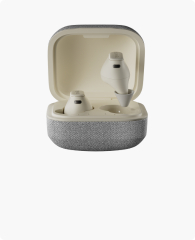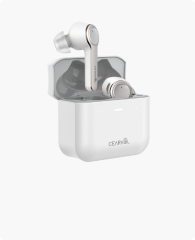Hearing aids can significantly improve the quality of life for individuals with hearing loss, yet they often come with high costs. Many people wonder: does Medicare cover hearing aids? The answer is more complicated than a simple yes or no. In this guide, we'll break down how Medicare handles hearing aid coverage, explore supplemental and Medicare Advantage plans, and provide actionable advice for anyone navigating this system.
🚀 Navigate This Post
- ➤ Part 1: Why Are Hearing Aids So Important?
- ➤ Part 2: Does Medicare Cover Hearing Aids? Original Medicare (Part A & Part B)
- ➤ Part 3: Medicare Advantage Plans and Supplemental Options
- ➤ Part 4: How Much Does Medicare Pay for Hearing Aids?
- ➤ Part 5: Additional Hearing Solutions Beyond Medicare
- ➤ Part 6: Final Thoughts—What's the Best Option for You?
You may also be interested in:
- Tinnitus and Hearing Loss: What's the Connection?
- 7 Great Tips for First Time Hearing Aid Users
- Comprehensive Guide: Everything You Need to Know about Hearing Aids
Part 1: Why Are Hearing Aids So Important?
Hearing aids are essential for those experiencing hearing loss. Beyond improving hearing ability, they enhance communication, social interaction, and mental well-being. However, their high cost often discourages individuals from purchasing them. This is where Medicare comes into play, but navigating the system can be confusing.
If you're looking for affordable and advanced hearing solutions, check out Cearvol hearing aids. These over-the-counter hearing aids provide advanced features like Bluetooth 5.3 and directional microphones, offering an alternative for those without insurance coverage.
Part 2: Does Medicare Cover Hearing Aids? Original Medicare (Part A & Part B)
When it comes to Medicare, it's important to understand that Original Medicare (Part A and Part B) has significant limitations regarding hearing health.
1. What Does Original Medicare Cover?
- Part A (Hospital Insurance): Covers hearing-related surgeries or treatments if you're hospitalized, such as cochlear implants.
- Part B (Medical Insurance): Covers diagnostic hearing exams if deemed medically necessary by a doctor.

However, Original Medicare does not cover routine hearing exams, hearing aids, or fittings. For example, if you're wondering does Medicare Part B cover hearing aids, the answer is no.
2. Why Doesn't Medicare Cover Hearing Aids?
When Medicare was established in 1965, hearing aids were considered non-essential, elective devices. Despite the proven benefits of hearing aids today, this outdated policy remains unchanged, leaving many seniors to ask: when will Medicare cover hearing aids?
Part 3: Medicare Advantage Plans and Supplemental Options
For those seeking hearing aid coverage, Medicare Advantage plans or supplemental options might provide relief.
1. Which Medicare Advantage Plans Cover Hearing Aids?
Medicare Advantage (Part C) plans are offered by private insurers and often include additional benefits not covered by Original Medicare, such as hearing aids. These plans vary widely, so it's important to review the specifics of each one.
2. What Medicare Supplement Covers Hearing Aids?
Medicare Supplement plans (Medigap) typically help cover out-of-pocket costs but don't directly pay for hearing aids. Instead, combining a Medigap plan with a separate hearing aid benefit through Medicare Advantage might be the best solution.
Part 4: How Much Does Medicare Pay for Hearing Aids?
A common question is how much does Medicare pay for hearing aids. For most Medicare beneficiaries, the answer is zero, as Original Medicare does not provide any financial support for these devices.
Out-of-Pocket Costs:
Without coverage, the cost of hearing aids can range from $1,000 to $7,000 per pair. However, affordable alternatives like Cearvol hearing aids are available, offering premium features at a fraction of the cost.
Part 5: Additional Hearing Solutions Beyond Medicare
If Medicare doesn't meet your hearing needs, there are several other resources to explore:
1. Employer-Sponsored or Private Insurance:
Some private insurance plans offer partial coverage for hearing aids.
2. State Assistance Programs:
Many states have assistance programs to help low-income individuals purchase hearing aids.

3. Affordable OTC Hearing Aids:
Over-the-counter options like Cearvol hearing aids combine affordability with cutting-edge technology, such as advanced noise reduction and sweat-proof designs.
Part 6: Final Thoughts—What's the Best Option for You?
Navigating Medicare's hearing aid policies can be challenging. While Original Medicare doesn't cover hearing aids, Medicare Advantage plans and affordable OTC options offer viable alternatives.
If you're considering purchasing hearing aids without full insurance coverage, Cearvol hearing aids provide a reliable and cost-effective solution. With features like customizable adjustments via the Cearvol app and long-lasting battery life, they're designed to meet the needs of today's users.

Diamond X1 - Best Hearing Aids with Bluetooth
Newcomer Price
$249.99 $309.99
- ✔ Adaptive sound modes for clear hearing.
- ✔ Bluetooth for calls & streaming.
- ✔ App-controlled, customizable adjustments.
- ✔ Rechargeable & fast charging.
- ✔ Ideal for mild to moderate hearing loss.
For further reading, don't miss our comprehensive guide: Everything You Need to Know About Hearing Aids.








Leave a comment
All comments are moderated before being published.
This site is protected by hCaptcha and the hCaptcha Privacy Policy and Terms of Service apply.